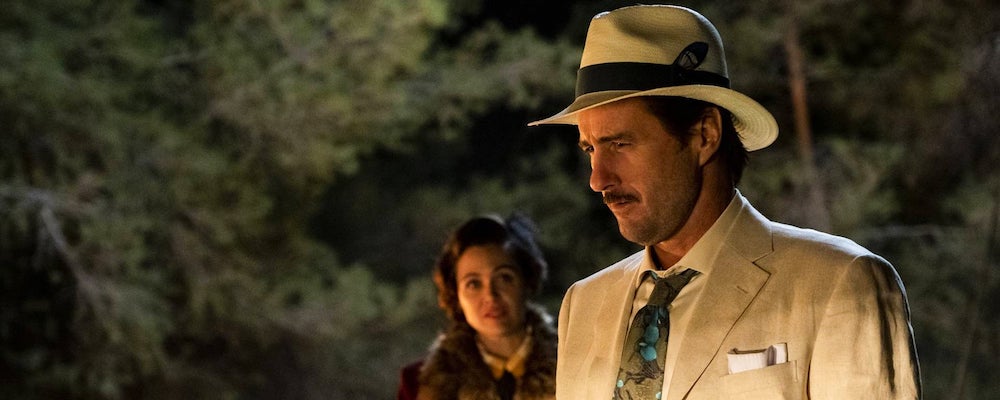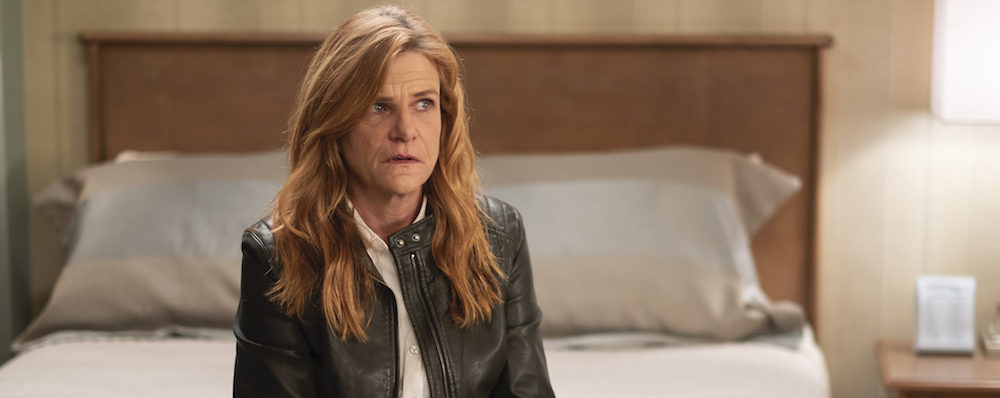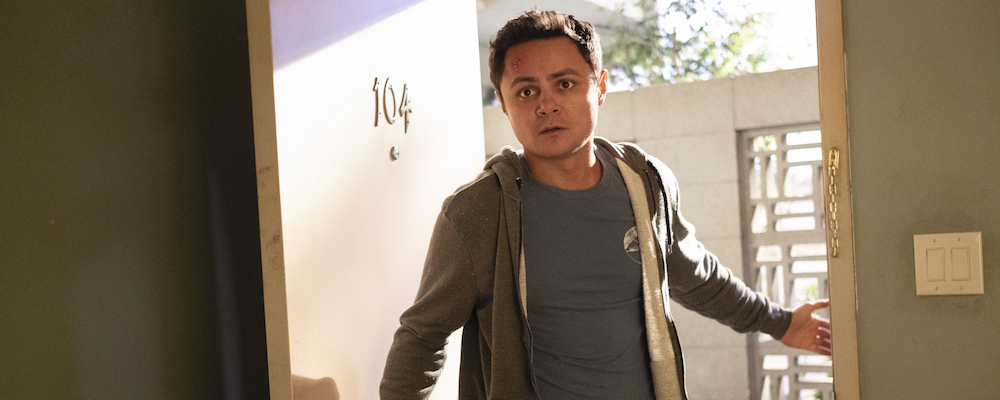‘Room 104’ Is Bolder and Stranger in Season 3
Andrew Bundy
The new season of “Room 104” is all about playing with genre within a confined sandbox. HBO’s 30-minute anthology series by creative siblings in crime, Jay & Mark Duplass, is a curious animal of a show because it essentially takes place inside a cage in the form of a motel room, but it’s always trying to find ways to claw at the bars and escape, to fully unleash itself
In the third season, polarity and resistance are two themes implanted across the new string of stand-alone episodes; human toxicity and the desperate need for unification The coded agenda of “Room 104″ happens to reveal its very problems. It’s a show that takes bold risks, but sometimes doesn’t know when to back off from the weird and just accept what it is. Instead of spinning old-fashioned conflicts in its favor — as a short story-esque series would most certainly only benefit from — the show often seems to be aiming to subvert or fight directly against whatever it thinks the audience might expect.
As it stands, the Duplass brothers’ series has much in common with “The Twilight Zone;” only the writing often seems to take a backseat to the cinematic experimentation, letting the grandiosity or grotesqueness of the plot twist do much of the heavy lifting. “Room 104” is a series structured around a setting not an idea, and the third season tends to disregard milieu, in favor of pulling the rug out from under itself, building to shocking reveals rather than planting the seeds for story payoff.
Jumping around in time perhaps more than ever before, the season opens with a kind of secret origin for our seedy motel room that seems to be some kind of supernatural magnet. It’s feels like a paranormal western play, a two hander about a pair of siblings who have inherited a land claim from their dead father and plan to build a place on the land to rent out rooms. As you might guess, it doesn’t go as expected.
Almost no narrative in season three ends up where you think it’s going. The strangest and most disturbing episode is shot entirely on an iPhone, as a patient with a rash that’s made him deathly ill facetimes his doctor with updates on his condition, leading to a heart-breaking confession that is soon undercut by a gross-out moment that’s devoid of dramatic meaning. Another episode is a kind of post-apocalyptic survival tale that involves a rogue planet throwing Earth out of the Sun’s orbit and the final half-hour finds the motel room turning into a kind of exotic prehistoric jungle ecosystem; but these trippy concepts comes off like they’re being used as flowery plot padding, rather than being exploited for deeper storytelling value.
Ironically, two of the more impactful installments are not ones that dabble in picking at genre concepts. The seventh installment of the season, “Jimmy & Gianni,” plays like a fake documentary on drug recovery. It follows a pair of L.A. artists (a father/son duo) mending their toxic relationship thanks to sobriety. The script feels real and raw and it’s a refreshing respite from all the heady high concept stories that many of the other episodes lean on. “Prank Call” will probably be the season’s most divisive episode, aiming for a kind of #MeToo commentary on male entitlement and sexual trauma. It does an admirable job of exploring an all too relevant topic, but it’s a bit testy in its assertions; just when it seems like it might pull off some substantial commentary it takes a swerve to achieve maximum shock value.
An anthology series can provide a sea of artistic possibilities, but it can also be a creative roadblock as conceptual experiments are prone to overtake emotional resonance. The third season of “Room 104” is original and idiosyncratic but lacks dramatic focus. It relies so heavily on genre twists that watching the episodes often feels like waiting for paint to dry, and when it does the final reveal is not the color that you remember being promised.
Season 3 “Room 104” premieres Sept. 13 and airs on Fridays at 11 p.m. ET on HBO.



